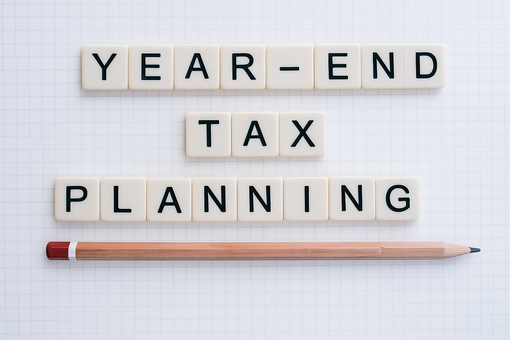Bitcoin Taxes – Frequently Asked Questions
Since its launch, Bitcoin has been hard to describe. Is it a currency? An investment? Some completely new? This made it difficult to figure out the tax laws for the cryptocurrency. This year though the IRS stepped in and gave an official ruling for the tax laws on bitcoins. To help you prepared for your tax return, here are the answers to the top tax questions on Bitcoin.
How Can Bitcoins Be Taxable?
Since Bitcoins come from a decentralized system and not a government, they ran outside of government regulations for years. As a result, people began to believe that maybe Bitcoins would be able to exist outside of government rules like taxation.
While this may have been the dream of Bitcoin, in reality anything that earns money eventually gets taxed. Now that Bitcoins have become valuable and more mainstream, the IRS is stepping in and wants to collect its share.
What Are the General Rules of Bitcoin Taxes?
The IRS has ruled that Bitcoins are a capital asset, not a currency. In other words, Bitcoins are more like shares of stock than like dollars or Euros. This is a bit disappointing for the tax treatment of Bitcoins because this means that the gains are taxable. If you have Euros and they go up in value against the dollar, you wouldn’t owe any gains on the appreciation when you convert the Euros to dollars. Investors were hoping the IRS would keep the same rules for Bitcoins but they didn’t by classifying Bitcoins as a capital asset.
How Do the Taxes Work On my Bitcoin Gains?
When you sell Bitcoins for a gain, your gains are taxable. So if you bought a Bitcoin for $300 and sold for $600, you would owe taxes on your $300 profit. You’d get your initial investment back tax-free. Also, you only owe taxes when you sell your Bitcoins. As long as you keep your investment in the cryptocurrency, you don’t need to report anything to the IRS even as the value goes up and down.
The taxes on Bitcoins follow capital gain rules. If you sell a Bitcoin after holding it for less than a year, the tax rate on the gain will be your personal income tax rate. However, if you sell a Bitcoin after holding it for over a year, the gain will be taxed at the lower long-term capital gain rate of 15 percent.
What if my Coins Lost Value?
One of the upsides of the IRS tax ruling is that investors will get a tax benefit when the lose money on Bitcoins. When you sell Bitcoins for a loss, you can deduct the loss against your other investment gains. If you have more in investment losses for the year than you do in investment gains, you’ll be able to deduct up to $3,000 in losses against your other income. Any excess losses can be carried forward to reduce your taxes in the future.
For example, let’s say over one year you sell Bitcoins for a total loss of $7,000 while selling stock for a $3,000 gain. Your Bitcoin losses would wipe out the taxes on your stock gains and would also give you a $3,000 deduction against your work income. You would be able to carry the $1,000 to next year’s tax return to reduce taxes on your future investment income.
What Do I Do if I Get Paid in Bitcoins?
As Bitcoin becomes more accepted, some employers have begun paying salaries in Bitcoins instead of dollars. The way this works is that the employer sets a salary in dollars. When a paycheck is due, the employer converts the total dollar amount owed to Bitcoins and gives the employee the coins.
For taxes, a couple things happen. First, the employee’s salary is counted the same as regular income. If someone is making $60,000 a year, it’s taxed the same whether the amount is paid in dollars or bitcoins. After that, the employee’s bitcoins count as an investment. If the employee holds on to the bitcoins and sells them later for a gain, the extra money counts as a taxable gain.
What Are the Tax Rules for Mining Bitcoins?
When a person mines income, they use a computer algorithm to generate new Bitcoins. The IRS now considers this a form of income. If you mine $20,000 worth of Bitcoins over the year, that counts as $20,000 extra of gross income just as if you earned extra money at work. After a Bitcoin is mined, it counts as an investment again. If the coins go up in value, the extra money is taxable gains while losses are capital losses.
Will This Affect Past Tax Returns?
Even though Bitcoin has been around since 2008, the IRS only announced its tax rules for the cryptocurrency in 2014. As a result, people have been making money for years off of Bitcoin without knowing the proper tax laws or even if there were any tax laws at all.
If you’ve made money in the past off Bitcoin, you so still unfortunately owe tax on that income. You are supposed to file an amended return for any years you made Bitcoin income and submit the unpaid taxes along with your amended return to the IRS. Investors who fail to report their past or future Bitcoin income could be hit with extra tax penalties or even charged with fraud.
Does This Get Rid of Their Benefits as a Currency?
Not entirely. While Bitcoins can’t evade taxes, they still do bypass many regulations that hamper regular currencies. Transactions with Bitcoins will still avoid bank fees and can be much faster than regular purchases, especially when the two parties are in different countries. Bitcoins also avoid the paper trail left by regular transactions which can come in handy for people who want to keep their privacy. Even without tax-free status, Bitcoins still offer value in the digital World.
Bitcoin looks like it’s here to stay as even the IRS is getting on-board. Make sure to keep these tax rules in mind so you stay ahead of the law with your Bitcoin investing.


